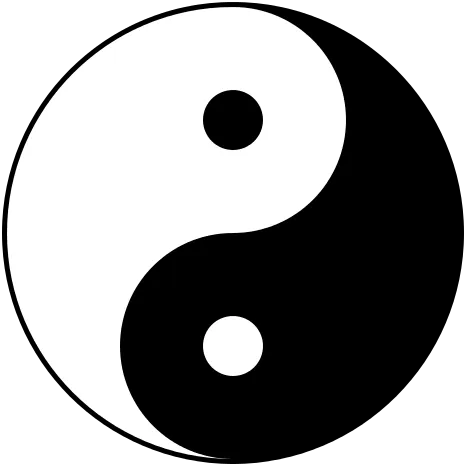There can be no good

Unfortunately, I don’t believe we can define it and experience shows we cannot take it or keep it. Below I attempt to find examples of unalloyed, pure, essential good. Against my own desires, I have to admit to failure. Since there is no definition of good that bears close examination, I propose that it does not exist and that when we think we have it, we are mistaking other things for it. Things which often seem good, but are not good, in and of themselves.

Plato goes so far as to divide good into three categories, good that is good in itself, good that is good in its results, and good that is good in itself and in its results (The Republic 3). In this he anticipates the Deontologist and the Utilitarians and even combines their effects for good measure.
But I am not happy with definitions such as “good that is good”. Many philosophers try to define good as that which is beneficial to one or to the group, without daring to describe what things are actually good for those entities. Some admit that defining good is naturally error prone but stop at that point as if it were sufficient. In point of fact, to my knowledge, there is no definitive view of good that can be tested against any set of cases and be found to hold true. Good is at best an emergent property of other, more concrete qualities. Again, it seems to be an illusion created by the addition of or subtraction of other things which we can actually define.


Even in such fundamental things as positive and negative electrical charges, we find that what we really have is either an increase in electrons making a negative charge, or an increase of protons giving us a positive charge. Without the electrons, with only protons, we see only a positive charge, and as we subtract protons we get less positive charge, then even less, then none. At that point we cannot remove any more protons but we still do not have a negative charge. We must add electrons to get a negative charge. The seeming negative is simply an increase in another type of substance or energy.
In this way I assert that either there is good, or there is bad, or there is both good and bad, but they are not opposites, just greater and lesser quantities of different qualities. In my experience, you can remove bad until there is no bad left and declare that you have good. I am not hungry, I have sexual partners, I am undisturbed in my rest, things are good. I am forced to admit that good is the illusion created when bad slips under a certain threshold, in the way that we say a room is dark when we have turned down the light to a certain level. If good did exist, we could remove good until there is no good left and say that it is therefore bad. Instead, normally, we must add bad. For good to exist, it must be a substance, quality or energy in and of itself. You must be able to add good to a system and see it increase. To do that, you must define good and be able to lay your hand upon it somehow.

The typical example of this is the man who wins the lottery. Sounds good on the face of it but as we know, the story cannot end there. His father-in-law wants some of the loot and makes trouble for him with his wife. He starts to drink the expensive alcohol and gets addicted. Young women find ways to get large amounts of his money from him and lawsuits take the rest, less than a year later he is found in a dumpster. Of course it doesn’t always happen this way, but it happens enough that it has become a trope in our civilization which is easily recognized. If it happens once, it’s enough to show that winning the lottery, is winning the lottery, and not intrinsic good.
I have tried, in my tedious way, to find things which are unalloyed good in all cases and I cannot. I can easily find things that are actually bad in every measurable way, in that they cause nothing but harm to one person for nothing more than the pleasure of another. So it appears to me that while bad exists and is synonymous with that kind of harm, Good, like the darkness of a dimly lit room, is just an illusion.

One might say that the actions which decrease the amount of bad in the world are good, but this is like defining down as ‘moving away from up’. One of the terms is meaningful only in relation to the other, while the other term has meaning by itself and a quality it defines. The former term is a phantom, devoid of a referent for its existence. Because the amount of 'down' can never reach zero (since we can go up as long as we want without reaching zero amount down), it makes more sense to use the amount of 'up' as a referent. Up has a lower limit at the bottom of every gravity well. When you get there, you are zero up. This means that some amount of 'up' existed to be brought to zero, but that 'down' never really existed at all. In the same way, since we can easily refrain from harming one person for the pleasure of another, bringing the amount of bad to zero, and since as long as we live there can not be zero good, then bad is the term which has a referent and good is the phantom.
Some might try to improve upon the conditions of nature to produce good. In this I am reminded of my son’s gymnastics lessons when he was a small child. The assistant instructor wanted to improve his stance on the balance beam, so she would walk beside him reaching out to touch him occasionally, pushing here and pulling there to try to get him in the line she wanted. Each touch further inhibited his action, due to the fear of never knowing when she might push on him again. Within three lessons he was no longer able to walk on the balance beam. Symbolically, every touch was an input of energy to the system, raising some thing from zero to a greater than zero number. In this case, it was imbalance. When balanced, there is no need for energy input. A stone balanced might stand in the desert for ages. Add energy to the system and the only thing you can accomplish is imbalance. In the affairs of humanity, it is rare to find balance. But when found, we usually say it is good. The harvest was on time, no enemies appeared on the hillcrest. Adding energy to that equation must only be to bring bad. Good is the least energy state, bad requires more fiddling around with.

Others might say that when thrown off balance, sometimes the attempt to recover brings about a higher state of being, a more firm balance, an improvement on the condition of nature - in a word, good. I admit the possibility. What I do not admit is the idea that the only possible way to reach this higher state of balance is to create chaos first. While random thrashing about might create an improved state occasionally (but probably not even half the time), a measured change with foresight and knowledge will bring it about more dependably with less concomitant bad. One method requires massive amounts of energy thrown in at random with a hope that maybe this time it will all work out for the best, the other simply requires finding a way to remove more of the bad imbalance, lowering the system to a more zero state. Further, to actually do this, to improve by throwing off balance first, there has to actually be a higher condition available.
In her Anthropology class, “People and Plants”, Dr. Renée Bonzani (03/09/2015) explains that in ritual plant medicinal magic, there are two main camps. Good magic, which seeks to use plants to restore health, and bad magic, which seeks to make people sick or kill them. I was struck with the various terms she used to describe the good magic. To these ancestral peoples, good was “restored”. Balance was found, humors were relieved, tensions were released, to do good, things were brought back to their natural state. To do bad, poisons were administered, imbalances created, fevers built up and sores erupted. The bad was an active energy which imposed itself on people, the good was finding a way to get those energies out. People who added things to your food while you weren’t looking added bad to your condition. The action of the healer was to remove that bad, extract the toxins, restoring good.
Even in a traditionalist, orthodox, monotheistic, judeo-christian religion, Good seems to be the rest state. God created the world, and just like that, it was good. He didn’t have to keep futzing around with it. In fact, when He did add something to it, by tossing in Lucifer, it made things bad. Later on we find that people are bad when they have demons in them, and when you get the demons out, they become good. We have sin, but when the sin is removed, we are sanctified.
In other religions, strife is to be avoided, karma is to be reduced, desires are to be eliminated, sins are to be avoided. Rituals and sacrifices are made to keep away the bad things, leaving the experience of good in their place. Even the agnostics are content with the lack of ability to know about God.
In science, for an experiment to be good, extraneous variables are excluded, outside influences are shielded, everything but the things sought for is brought to as close to zero as possible. In government, a good law reduces the amount of crime, or recompenses for bad that has happened. A bad law messes with people for no reason, cause trouble where none existed, stirs up things which were at rest. In personal relationships, good is when things are stable, stable marriages, stable jobs. Trouble arises when other things, sexual enjoyment with another person, conflicts with personnel, occurred to disturb the stability. In every way, good is the experience of less bad, and those things we call good which can be added are, in fact, something else entirely. Things which might be either good or bad depending on their use.
In no way can something be added to a system which does anything but reduce the imbalance to a point at which it is balanced, a zero state, or which adds to the imbalance. When Utilitarians say they want to bring about the greatest good for the greatest number of people, I say they mean to remove the most amount of bad from the largest number of people. When Deontologists say their precepts are those of Universal good, I say they are concepts which avoid the bad. There are no polarities, nothing is opposite anything except by comparison. Even left and right, north and south, exist by comparison to your present position (actually, magnetism was a disturbing example of polarities until we invented monopole theory).
Either you have something or you have nothing, there are no negative quantities of a real thing. Since bad can be shown to be a real thing, purposeful harm to persons solely for the pleasure of others, and since those things we call good are actually other things with no discrete ethical value of their own, I conclude that Good does not exist. It is an illusion created by simply leaving me the heck alone.
Hobbes, Thomas, and J C. A. Gaskin. Leviathan. Oxford: Oxford University Press, 1998.
Mill, John S. Utilitarianism and the 1868 Speech on Capital Punishment. 2nd ed.
Plato. Republic. Trans. Benjamin Jowett. http://classics.mit.edu/Plato/republic.html
